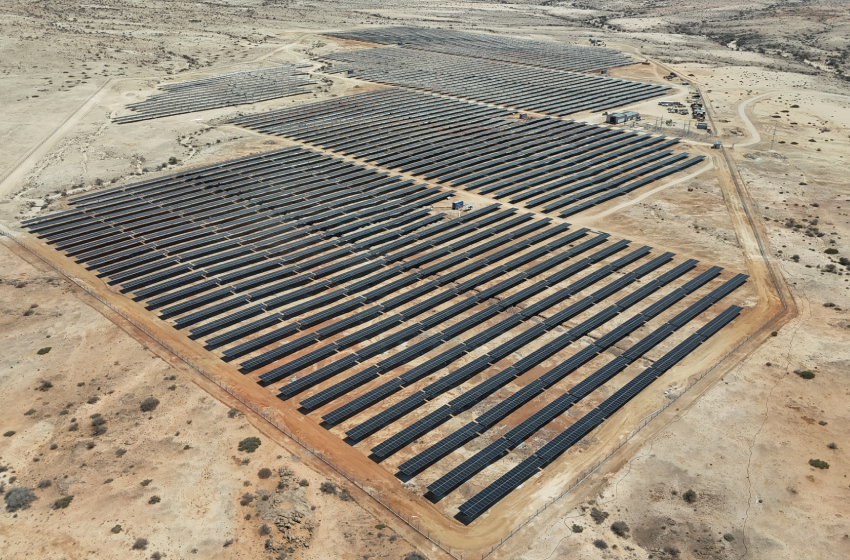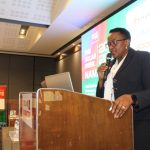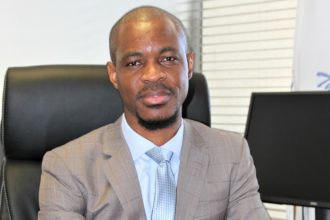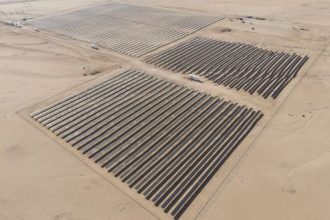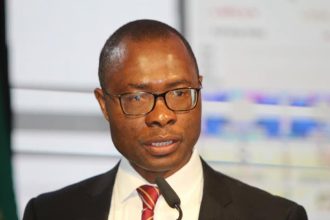Namibia took yet another step towards achieving energy sufficiency goals with the recent addition of the 25-megawatt (MW) Khan Solar photovoltaic (PV) Plant in Usakos.
The solar plant, named after Moses Mague //Garoeb, a dedicated freedom fighter who devoted his life to Namibia’s struggle for independence, is designed to produce electricity at a cost of 49.5 cents per kilowatt-hour (kWh), making it the cheapest energy cost per kilowatt in the entire Namibian energy generation mix.
The N$360 million project is a result of a partnership between Alpha Namibia Industries Renewable Energy Power (ANIREP) and Aussenkehr Energy Investment, with HopSol Africa as the EPC contractor. NamPower is the off taker of the electricity.
Former President Nangolo Mbumba inaugurated the plant on 6 March, as one of his final engagements before completing late President Hage Geingob’s term as head of state on March 21.
CONCRETE STEP
Mbumba said the solar plant was a concrete step in moving Namibia towards energy sufficiency, and the development of new economic sectors and industries, including green hydrogen and green industrialisation, which are geared towards local value addition and job creation. He said it was also a step towards the fulfilment of the noble goal of decarbonisation.
“Namibia has committed itself to energy transition from 100% reliance on fossil fuels towards renewables such as solar, wind and thermal energy. This strategic shift in energy utilisation is part of our contribution to reduce emissions and achieve global carbon neutrality by 2050,” said Mbumba.
“To achieve energy sufficiency and efficiency, development of energy storage technologies that can make up for the intermittent nature of solar energy is essential. However, provision of solar energy must not come at high costs to consumers but should be affordable. It is therefore pertinent that we ensure that during the energy transition no one should be left behind. The 18 500 beneficiaries of the Khan Solar Substation are a testament to this commitment,” said the former president.
The Khan solar plant is an essential part of Namibia’s larger effort to boost its renewable energy generation capacity and reduce reliance on imported energy. It is also a key element of the nation’s goal to generate 70% of its electricity from renewable sources, including solar, wind, and hydro power.
ADVANCED TECHNOLOGY
This latest addition to the renewables generation family stands out due to its advanced technology, featuring high-performance bi-facial solar modules and a single-axis tracking system. The plant maximizes energy production by ensuring that the panels track the sun’s movement throughout the day, absorbing both direct irradiation and ground reflected irradiation.
The 33,000 ground-mounted solar panels spread across the 60-hectare site generate a total installed DC power capacity of 25.7 MWp, with an export capacity of 20 MW. The plant is expected to produce approximately 67.8 GWh of electricity annually -enough to power nearly 20 000 households.
The solar plant’s impact extends beyond energy generation. It created over 200 jobs during its construction, with 117 local hires, giving workers valuable skills and providing a skilled workforce for future renewable energy projects in Namibia. The town of Usakos also benefited from increased demand for services such as retail, hospitality, and security.
HopSol Chief Executive Officer, Silvester Wayiti, said the Khan solar project represents the company’s commitment to improving lives by providing affordable energy.
“Every solar project we complete means more affordable energy for families and businesses. It’s about improving lives, one kilowatt at a time. In a country where job creation and local economic development are key priorities, the Khan Solar Plant demonstrates that renewable energy projects can deliver long-lasting benefits that extend far beyond their environmental impact,” he said.
“We’re putting more power on the grid than a coffee shop can do on Monday morning. Except, our power doesn’t need caffeine to keep running,” said Wayiti.
Wayiti said with the Khan solar plant now operational, HopSol is now looking to future projects that will further support Namibia’s green energy goals.

